Empowerment Through Access – See Us Outside, Episode 2
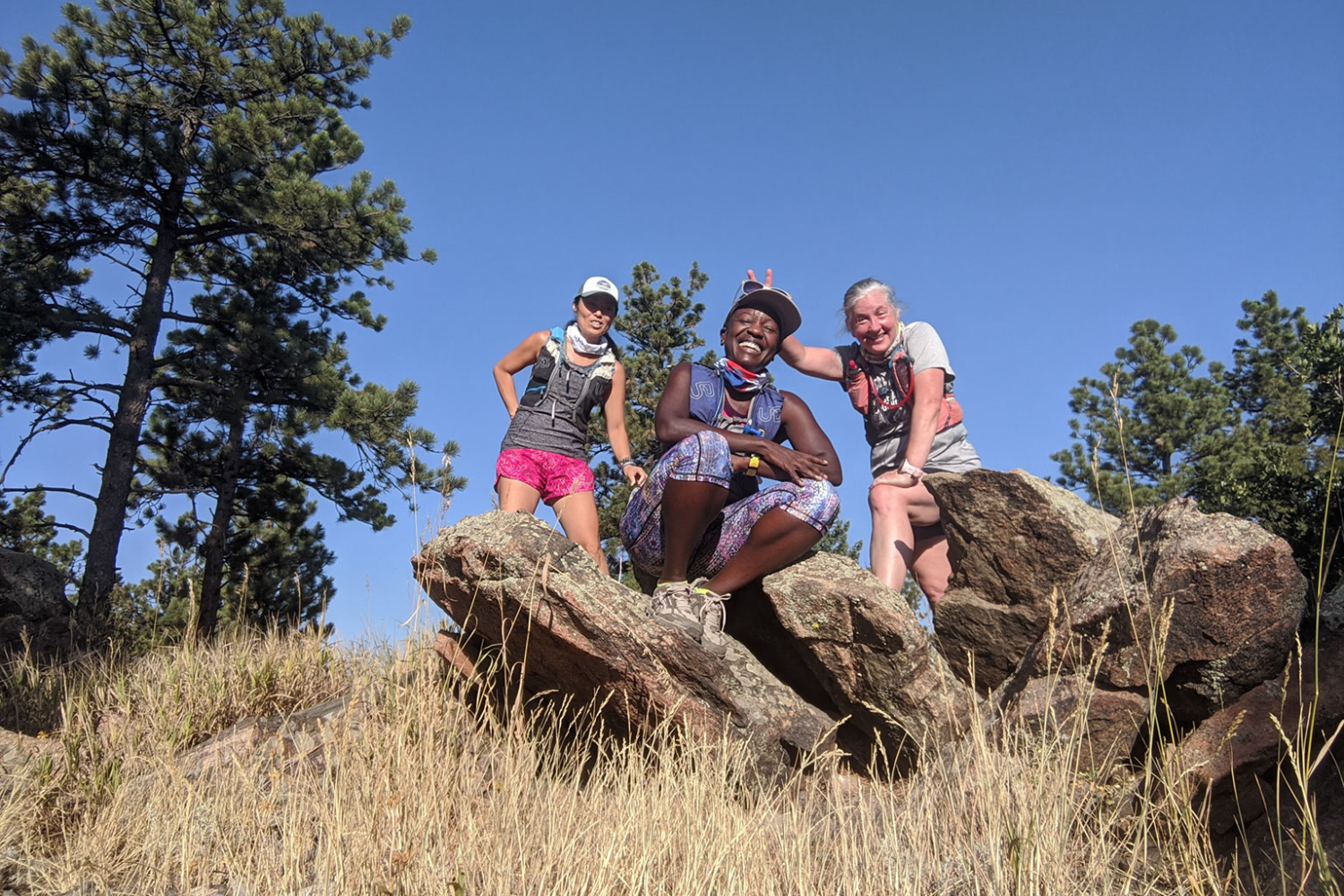
See Us Outside: Episode 2
Empowerment Through Access
Creating more opportunities for access to outdoor recreation allows young women of color to define their own narratives in the outdoors. Organizations like Young Women Who Crush and Women’s Wilderness are playing a key role in opening up the door to the benefits of spending time in nature. In the second episode of See Us Outside, Gabaccia explores the systemic barriers to accessing the outdoors and the liberation and healing that can occur when a woman of color gets to choose it for herself.
Transcript available after the photos and credits!
Banner image photo courtesy of Kriste Peoples.
Find the episode below, on Apple Podcasts, Spotify, Stitcher, or wherever you stream podcasts.
Featured in this episode: Cristal Cisneros, Kriste Peoples, Alexis Krauss, Marian Perez, and Mira Manickam-Shirley; Voice memo included in this episode were submitted by Gabrilla Ballard.
Hosted by Gabaccia Moreno
A Production of Ravel Media; Produced by Gabaccia Moreno, Noël Russell, and Gale Straub.
Music by Joy Ike & Sita via MusicBed
About the series:
This special She Explores miniseries is made in collaboration with The Cairn Project, and made possible by a grant from the Walton Family Foundation.
Host Gabaccia Moreno is our guide in exploring the unique relationships girls and young women of color have with the natural world and outdoor recreation. Through the voices and stories of leaders and participants from diverse outdoor organizations doing the work to help young people of color thrive in the outdoors, this four-part audio miniseries will highlight the joy, connection, and community these girls find in nature, as well as the importance of organizations doing the work to expand outdoor opportunities.
We want to stress that when we say this series highlights women and girls of color, this is inclusive of all cis and trans women and girls, as well as folks of all gender identities who feel comfortable in spaces that center women. That said, for the most part, when we talk about gender we most often do so in terms of those who are socialized as girls and women in a more heteronormative, binary way.
Resources
- Organizations Highlighted
- Featured in this episode:
- Cristal Cisneros
- Kriste Peoples
- Alexis Krauss
- Marian Perez
- Mira Manickam-Shirley
- Voice Memos Featured
- Host: Gabaccia Moreno
All Four Episodes of See Us Outside Are Available Now Wherever You Listen to She Explores
The opening See Us Outside Compilation includes the voices of Marinel De Jesus, Yakuta Poonawalla, Meggy Pyaneeandee, Fernanda Jardim, Arlene, Chi Pham, Denise Meeker and Doreen Wong and includes Spanish, French, Portuguese, Tagalog, Hindi, Vietnamese, Cantonese, and English.
Featured in this episode:
Kriste Peoples, Instructor for Women’s Wilderness
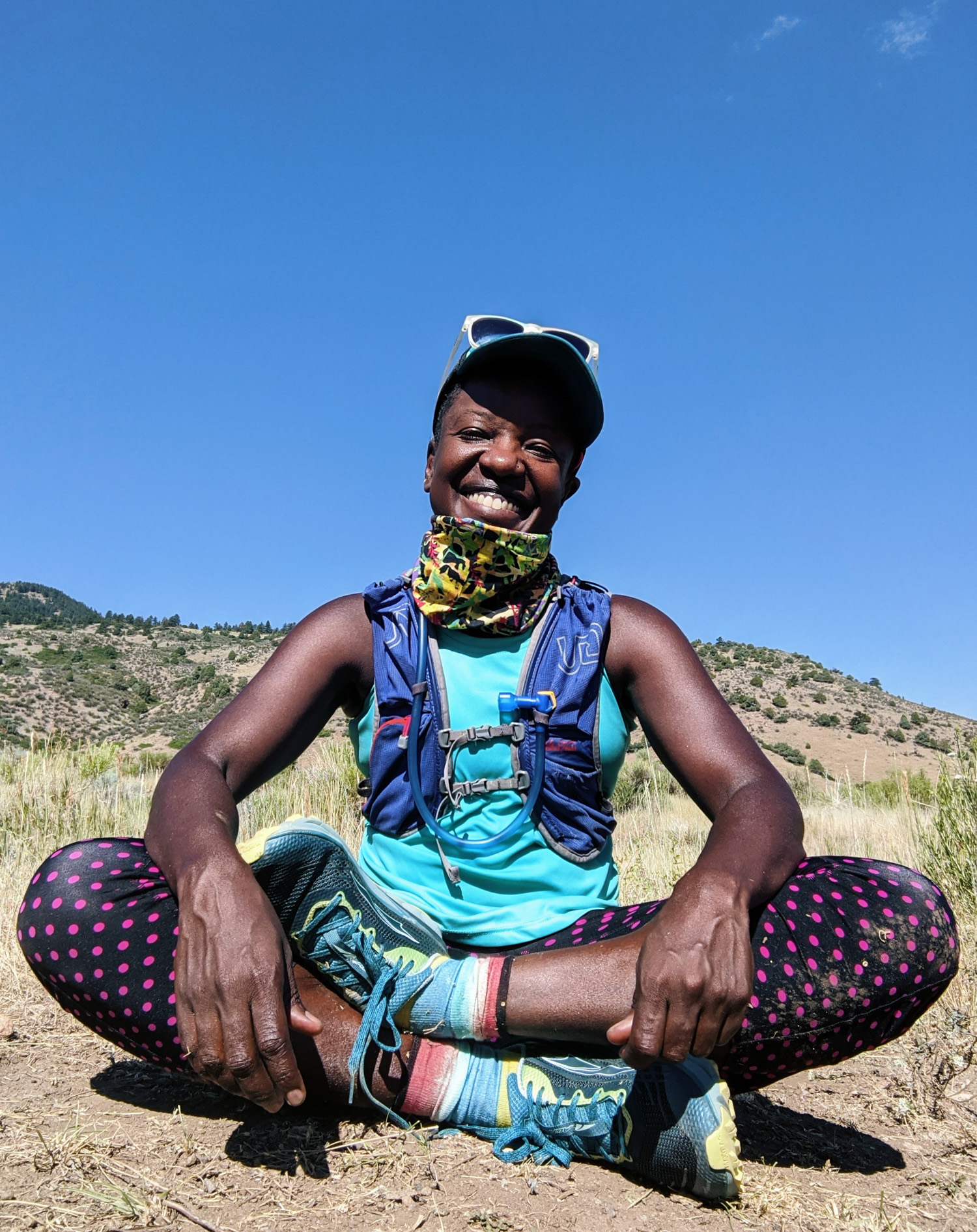
Kriste Peoples
Alexis Krauss, Co-Founder of Young Women Who Crush
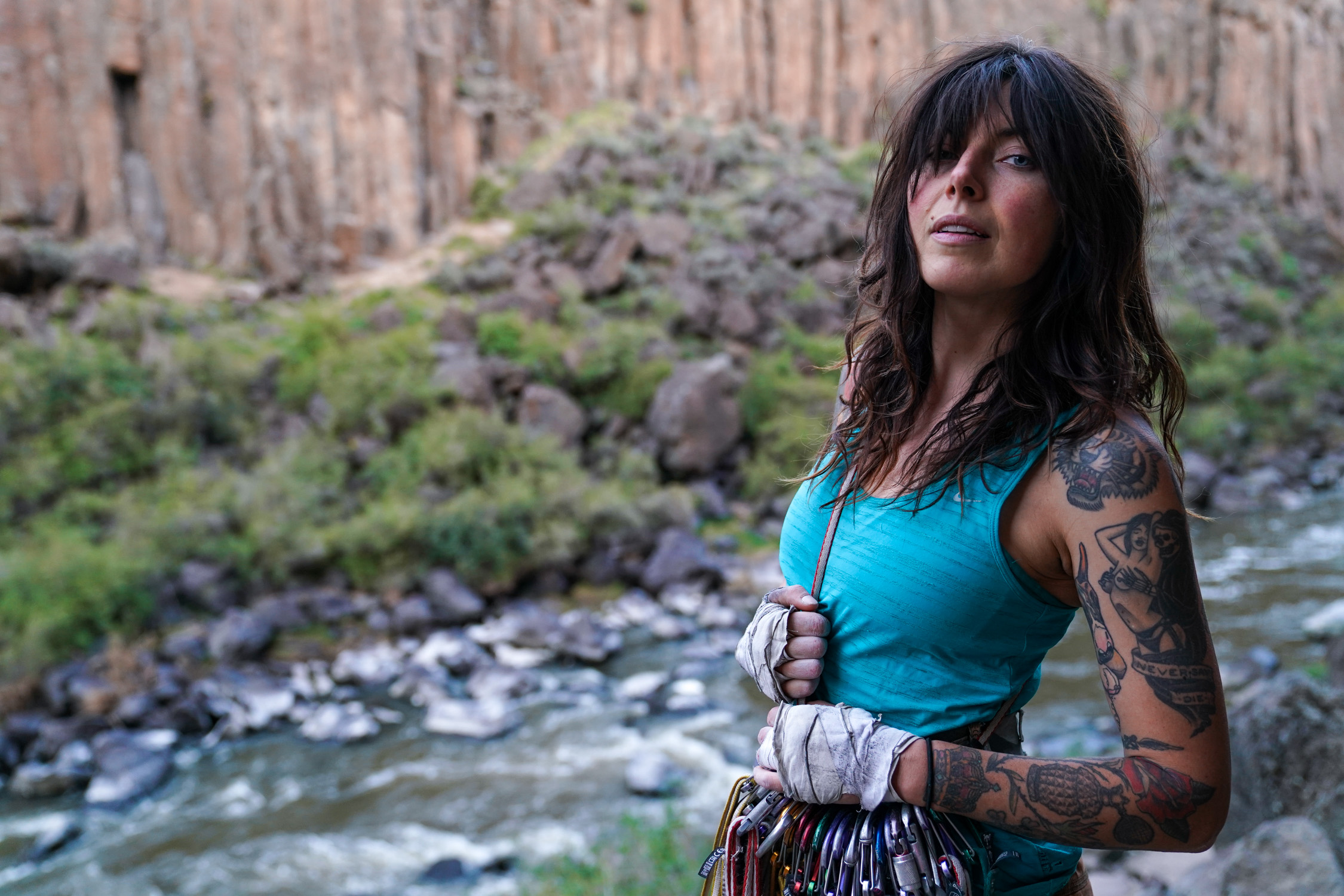
Alexis Krauss, Co-Founder Young Women Who Crush
Mira Manickam-Shirley, Executive Director of Brown Girl Surf
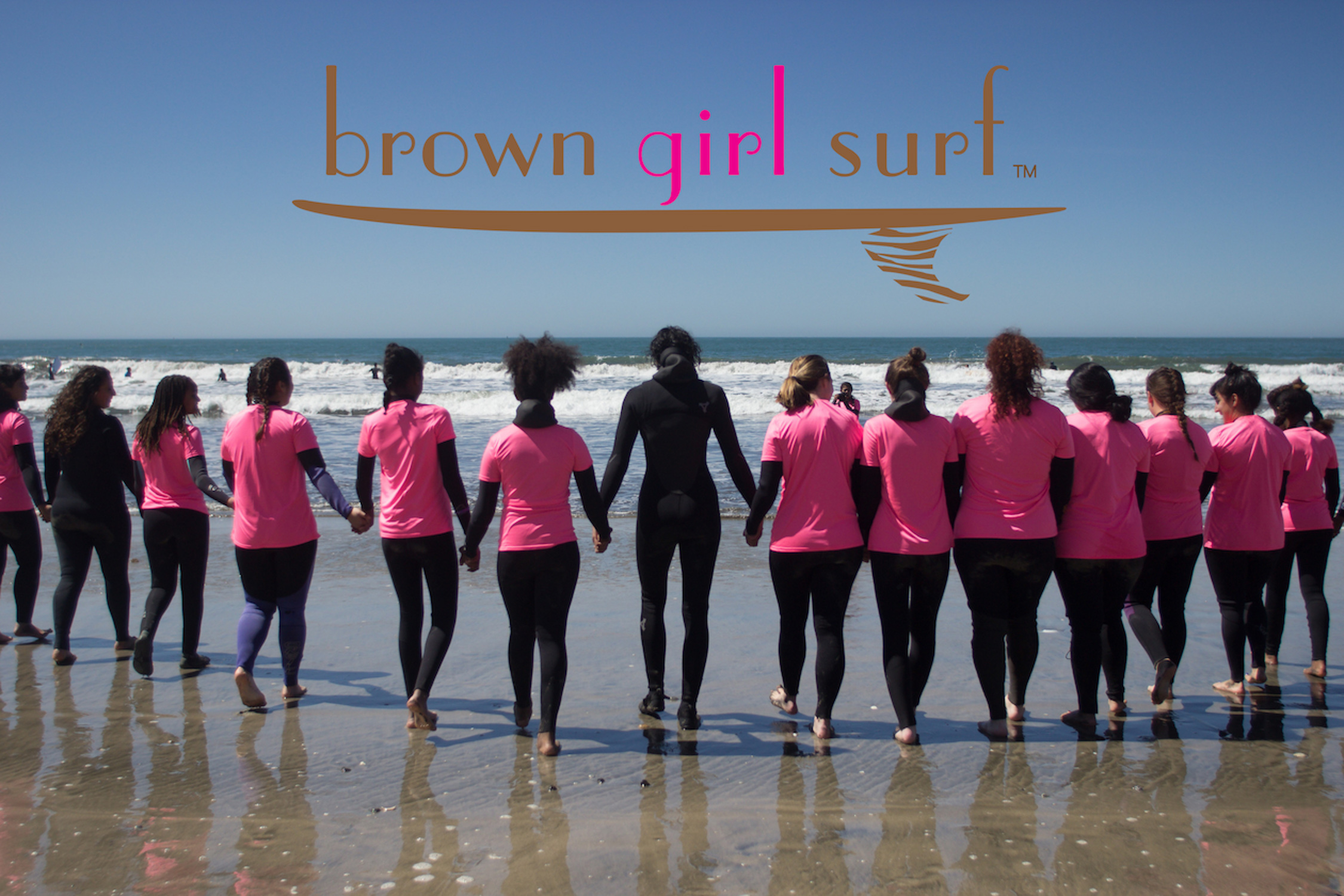
Brown Girl Surf
Cristal Cisneros, Instructor in the Trailblazer’s program at Women’s Wilderness
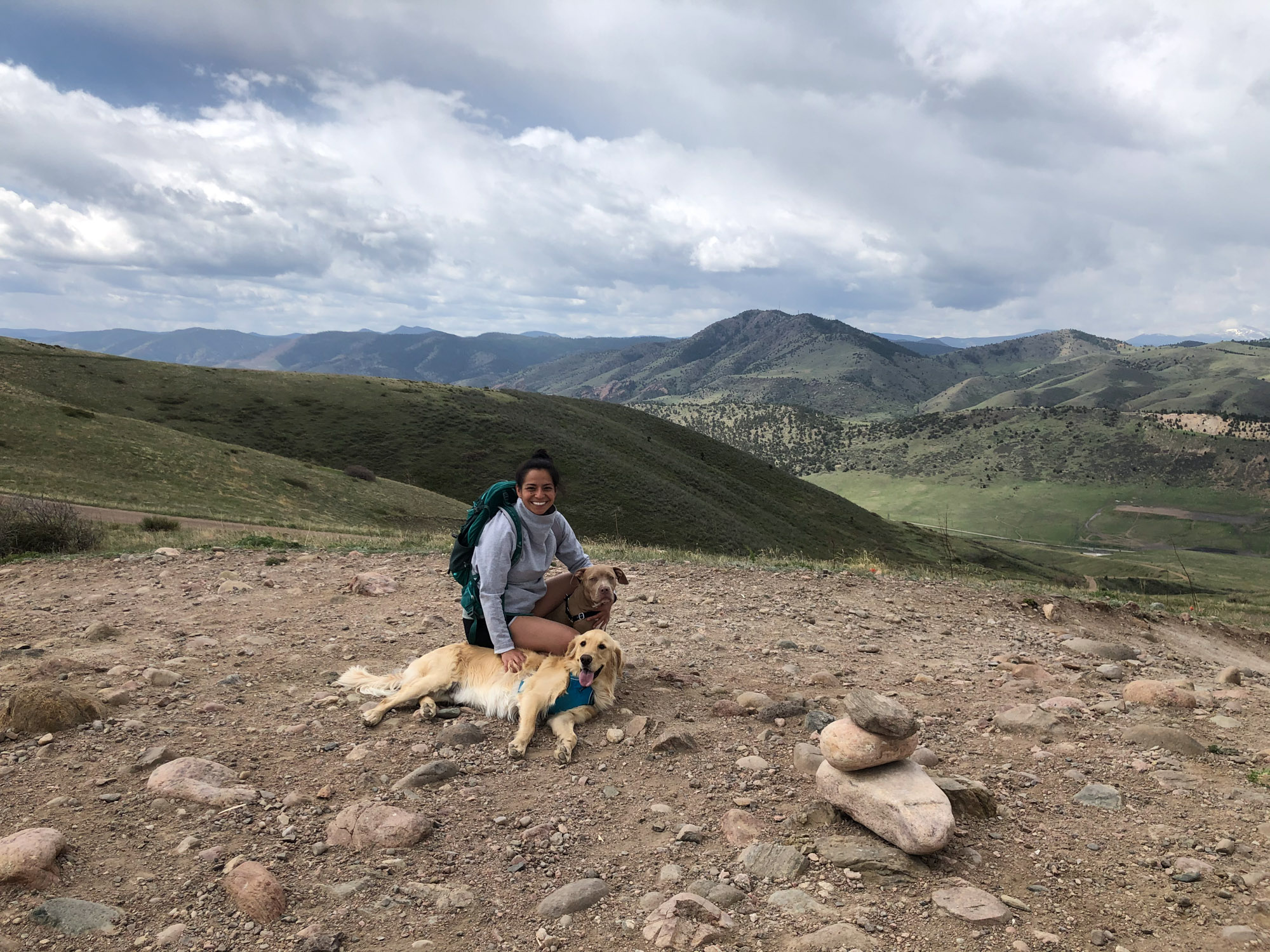
Cristal Cisneros
Gabrilla Ballard
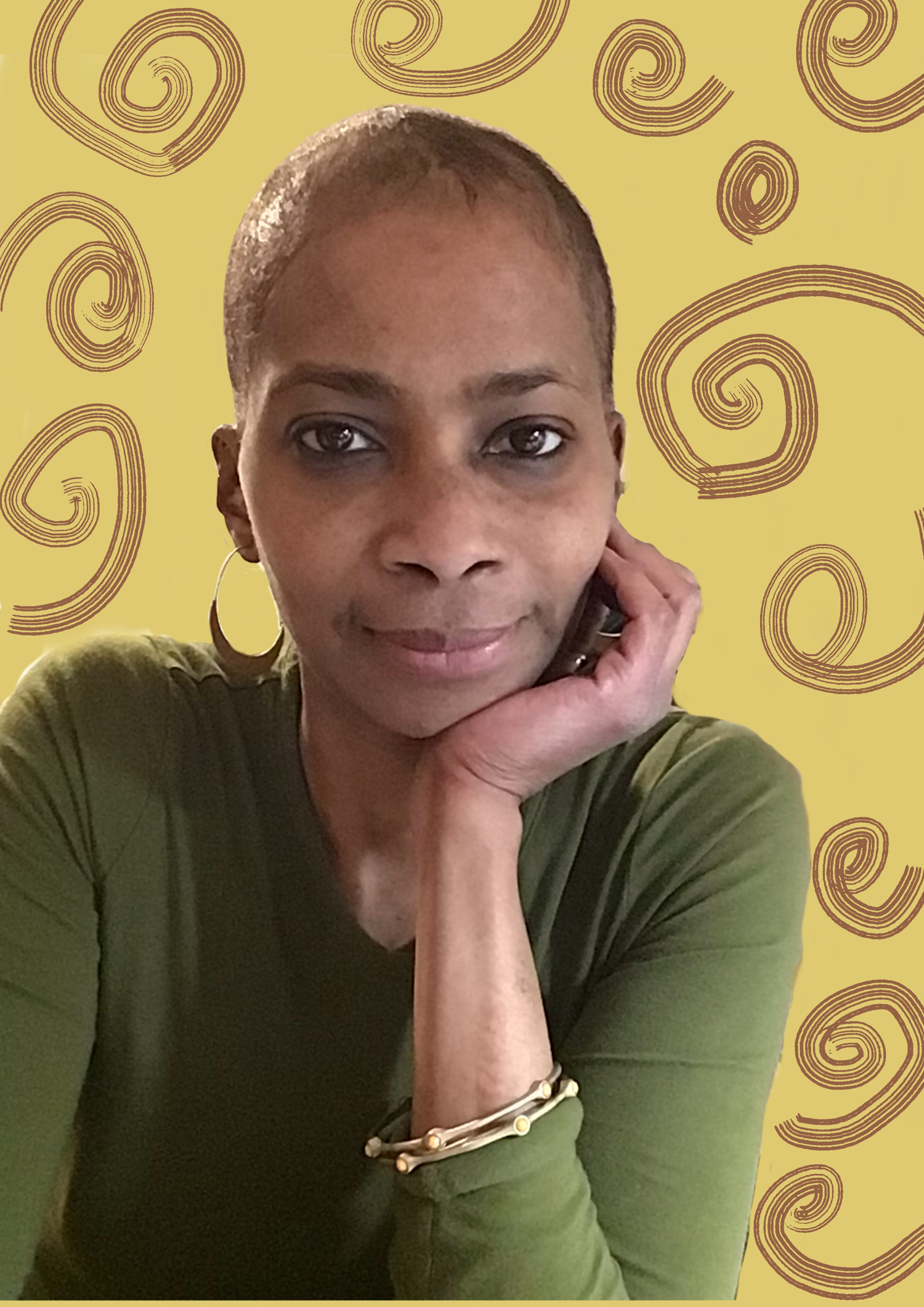
Gabrilla Ballard
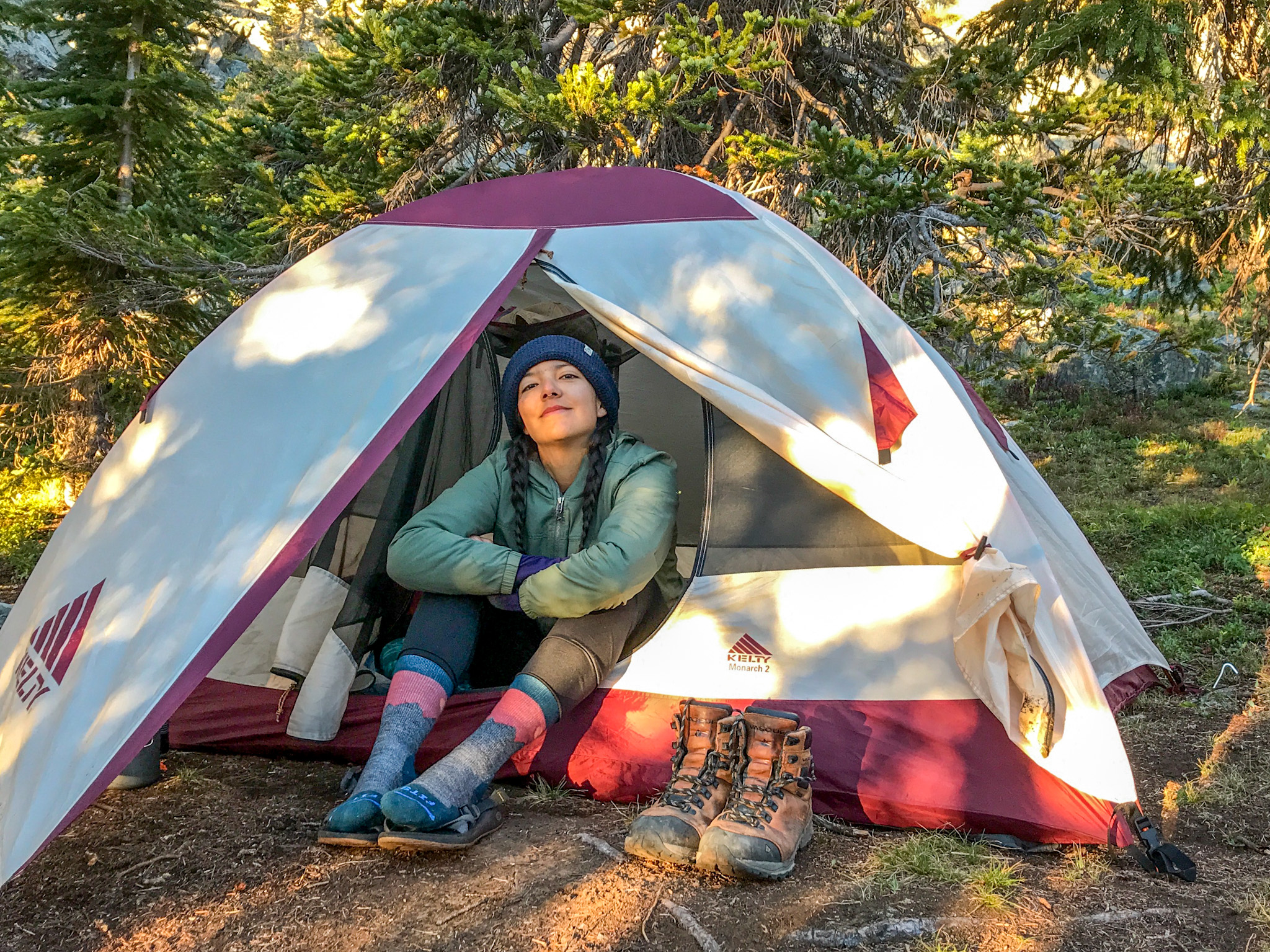
Host Gabaccia Moreno
Enjoy this episode? Rate us on Apple Podcasts or wherever you listen. It’ll help other people find us. You can also share this podcast with a friend. Thank you for your support!
TRANSCRIPT
Note: This transcript was lightly edited and created using a transcription service. As such it may contain spelling errors.
Gabrilla Ballard:
One of the positive things about nature for me is what it teaches me. I recently set out for a hike in the woods. I’m at a reservation near where I live and my intention was only to spend about an hour out, but somehow I got disoriented and lost my way. And eventually what turned into an hour height was a three hour hike and a seven mile hike and getting lost vacillating between panicking and staying calm. And eventually a woman was kind enough to drive me to the other side of the mountain, where I got my car and I was able to get out of the mountain, but what I remembered and what was the thing, I think that kept me calm was that I wrote a list while I was trying to find my way a list of all the things I wish I had known prior to starting.
Gabrilla Ballard:
And I eventually came up with a list of 20 items and I want to share a few of them here, followed the markers. Others have left behind. Remember where you started, know your coordinates, turn back. If you have to don’t panic, be prepared for detours. I eventually shared this list with some young people I work with. And what we realize is that not only were these helpful in, um, hiking situation, but it also helpful in life because sometimes you have to take detours. Sometimes you need to ask for help. Sometimes you will have to go back to the starting point.
Gabaccia Moreno – Narration:
Gabaccia: See Us Outside is a special four-part She Explores mini-series made in collaboration with The Cairn Project with support from the Walton Family Foundation. I’m Gabaccia Moreno, your guide in exploring the unique relationships girls and young women of color have with the outdoors, including the forces outside of our control that sometimes keep us from pursuing time in nature, and the work of four organizations striving to create more access and opportunities for us to get outside. This is episode 2, Empowerment through Access. For participants of successful programs committed to creating access, outdoor activities evolve from being a distant space reserved for another prescribed “type of woman” to becoming a habit, a memory, a pursuit, a place where one belongs. While the basic skills for outdoor safety, Leave No Trace, and leadership, are part of the curriculum of the organizations featured in this series, the actual adventuring that happens is shaped by the diverse collective of mentors and participants and does not mimic a pre-existing model of being a “hiker” or a “surfer or a “climber.” But before they can gather in community for this magic to happen, there are inherent barriers that need to be overcome. Each organization I spoke with for this series creates opportunities for girls and women of color to access the outdoors, whether in the mountains, on the water, or in their local neighborhoods.
Marian Perez:
I followed the hashtag Gunks or the Gunks. And I saw that Alexis Krauss from sleigh bells was a trad climber. And I was like, Oh, sick.
Gabaccia Moreno – Narration:
This is Marian, a mentor at Young Women Who Crush. She introduced Alexis a co-founder of the program better than I could.
Marian Perez:
The lead singer of Sleigh Bells is a climber ,like that’s so random, but so wonderful. And then I noticed that she had an organization called Young Women Who Crush. And I was like, what? What’s this? I looked into it. And I was like, Whoa, like this is amazing.
Gabaccia Moreno – Narration:
Alexis shared a bit about what they do and the why behind it all.
Alexis Krauss:
Young Women Who Crush is a rock climbing and leadership program that serves young women and gender expansive youth from New York city. And the why is really it’s really to empower our participants to recognize not just their own physical power, but their mental, emotional power and potential through rock climbing, but also through mentorship and community rock climbing is, is a very sort of specific space, but it’s amazing what the outdoors creates in terms of connection and awareness and just interdependence. And so it just becomes this, this one Avenue in which we’re able to pursue this whole kind of world of leadership and communication and community and empathy and just, yeah, I mean, I, I’m a rock climber and so I’m very passionate about climbing, but I feel like so much about what makes this program amazing is, is beyond the actual physical discipline of rock climbing.
Gabaccia Moreno – Narration:
It’s worth noting that Alexis is a white, cisgendered woman, and that Young Women Who Crush does not exclusively serve young women and gender expansive youth of color. But they offer a free program which minimizes the financial barriers of getting started in rock climbing. Young Women Who Crush teaches these young people how to climb indoors, and gives them the opportunity to take the skills they’ve learned on outdoor climbing trips as well. But when Alexis says that the program isn’t just about climbing, she’s talking about the positive effects that access to this sport, and time in nature, have for the participants. Alexis first brought up the power of community, which we’ll talk about in episode 3, but other meaningful experiences can be found in the challenges of rock climbing.
Alexis Krauss:
Obviously there’s also challenges, right? I mean, rock climbing is, is physically, mentally, emotionally, very demanding. And so there are times when our crushers are contending with a lot of fear, a lot of anxiety, a lot of stress that’s coming from home or school. And certainly that stress manifests on the wall. And most of the time, fortunately, there’s that ability to overcome or there’s that ability to maybe break down and then have a catharsis. And so I think the sort of process of that, you know, working through the challenge and proving to themselves that they can come out, the other end and more capable resilient person is, is also something that brings a lot of our crushers. A lot of just pride. You know, we’ve heard the word perseverance over and over again is something that they’ll talk about in their conversations. And they’re often like really kind of pleasantly shocked by their resilience and their perseverance.
Gabaccia Moreno – Narration:
Rock climbing not only teaches lessons of perseverance, it also offers an opportunity to experience being truly present in the moment.
Alexis Krauss:
Our modern world is so full of distraction. And a lot of times our, our girls will talk about that. They’re like, it’s just really nice to have a break from social media and from answering emails and from constantly, you know, having to go from one thing to the other and now, especially juggling school and remote learning. I mean, that’s just this very, very intense pace and, and just so much happening. And so it’s very easy to like not commit to one thing and see it through. And I think one thing that climbers often talk about when they talk about why they love rock climbing, is it forces you to focus on one thing. It forces you to fully commit to your body and your mind and your breath and, you know, and that’s so often what we find in the outdoors is that kind of meditative space where we can just be, and kind of be unfettered by all the distractions. And so I think climbing itself is sort of a vehicle that allows, allows these teens to just like have that ability to just really commit and focus on themselves and, and focus and like define the path ahead of them.
Gabaccia Moreno:
Absolutely, I will completely agree with you because I know being on a rock or on a wall, you have to be fully, there is no other way, really.
Alexis Krauss:
Yes, absolutely. And especially as you, as you become more serious about it, and that’s definitely something our program, as we grow as a program, you know, our, our, our climbers are not just top roping necessarily they’re lead climbing, right. They’re placing their own protection. And so the stakes, you know, the stakes get higher and there’s more consequence and climbing is dangerous. And, and that’s always something that, you know, we have to kind of remind each other, even when we’re in this space of just like giddy laughter. It’s like, okay, like we are literally in charge of each other’s lives. Every time we say, you know, on belay, belay on climbing climb on like that comes with a really serious consequence. So I think that also like the, the serious ness of climbing and like the high consequences, definitely something that just kind of forces you into that intense focus.
Gabaccia Moreno – Narration:
When we gather to create safer spaces to be ourselves and take risks together, we can gain more than just a physical or visible skill. We gain community, we gain self-confidence, and when you add nature into the mix, we also gain an ally for our personal and collective healing. Marian, a mentor with Young Women Who Crush, realized she loved being outside at 20 years old when she got a job working at REI. It’s been especially beneficial to her mental health.
Marian Perez:
Being surrounded by the sounds of the wind blowing through the trees, the birds, the random animals, the water flowing is like, it’s great. It’s wonderful. And I grew up in the city for a short amount of time. And then I moved to New Jersey in the suburbs of New Jersey. And again, I didn’t connect with the outdoors till later on in life, but it’s definitely has changed a lot of different aspects of how I deal with everyday life.
Marian Perez:
Marian also speaks to a sense of agency and independence that she’s found in the outdoors, which organizations like Young Women Who Crush also help foster.
Marian Perez:
The biggest thing for me has been like, and this all comes down to like mentoring as well as like, I have, have always been told like, Oh, don’t go outside by yourself. Hm. My mother still does. They, she listens to this. If you put this on, maybe she’ll be upset. But like, to this day, she’s like, you know, like you didn’t do that by yourself. Right. Like I’ll show her pictures of like me, like summoning these mountains in the Adirondacks or like in the like, Oh yeah, look at me doing this. She’s like, you didn’t go out alone. Right. I’m like, I didn’t go alone. But like that, being able to do that, I love adventuring with other people, but being able to like, just be in that space and like being able to take care of myself and knowing what I need to do, it’s such a rewarding aspect to me. And I think being able to share that experience with other people, especially younger folks to say like, you know, like you can, if I can do this, you can do this. Being able to connect with nature and like planning and preparing and being able to do it on your own also says a lot, especially as a woman in this world,
Gabaccia Moreno – Narration:
Marian made a big leap by quitting her job and moving to be closer to the Shawagunk mountains, known as the Gunks. So she thinks a lot about the importance of access.
Marian Perez:
The fact that Young Women Who Crush exists for folks in New York city that maybe they wouldn’t have tried any of this is like, it’s pretty amazing thinking about access and thinking about the fact that like some of these girls have never experienced being out in nature is super important. And for all of us that have the privilege of just coming up to these spaces whenever we want and any outdoor space whenever we want, I think we need to take the time to think about that aspect and think about other people that don’t have access, even folks that live so close to this space or any space. And don’t get to experience it for fun is so interesting to me, in a way where I think there needs to be more organizations like Young Women Who Crush or more people trying to help with that access. And with this sport, it’s, it’s a selfish sport. Climbing is a selfish sport, but like the amount of empowerment that you get as a climber and someone who might never think that they could do something like that, everyone deserves to have that feeling.
Gabaccia Moreno – Narration:
In all the conversations I had for this series about barriers for girls of color to the outdoors, access came up the most. A common claim about the outdoors is that it’s free. So it should be accessible to everyone, but it’s much more complex than that.
Kriste Peoples:
You can look at these charts for like workflow, right. That says, okay, if you’re to this question is yes, you go this way, but it’s no, you go that way then if it, if your next answer is, yes, you go this way, you go that way. You know what I’m talking about?
Gabaccia Moreno:
Yeah, absolutely.
Kriste Peoples:
Yeah. So that’s what it is with, with these kinds of programs for young girls of color. Like, well, if my family says no, or if I don’t know about it, then that ends the, the adventure right there. That ends it right there. I don’t, I don’t get to go through all these other options if, if I can’t get there, if I don’t have the resources, if I don’t know about it, or if I don’t have the support to explore it,
Gabaccia Moreno – Narration:
This is Kriste Peoples, an Instructor for an outdoor organization based in Boulder, CO called Women’s Wilderness, whose specialty is helping girls and women become their strongest, best selves, while providing a foundation of instruction in wilderness travel and outdoor skills. She’s an instructor in their Trailblazers program:
Kriste Peoples:
The fundamental goal really was to provide training for women of color by women of color, because that was a real gap that we were noticing. And then I had been experiencing myself as a black woman in Colorado in a very dark minority of outdoor enthusiasts.
Gabaccia Moreno – Narration:
I loved Kriste’s example of using a flowchart or decision tree to describe access to the outdoors. Each woman of color’s flow chart likely looks a little different: the questions might be: do I have the extra income or gear or time to pursue this activity? Does this activity feel too dangerous to try? But something all women of color have in common in colonized societies is the answer to the question: will I be welcome? Which is short for: will I be discriminated against due to the color of my skin? The impact of discrimination is often compounded for Black girls and young women. Mira Manickam-Shirley, Executive Director of Brown Girl Surf, talks about the barriers to access in relation to water sports, but much of what she talks about can be extrapolated to other outdoor activities:
Mira Manickam-Shirley:
When we think about access to the beach access to surfing, right? You can start, you can just look at so many strands through which people of color have, have disproportionate barriers or just full out exclusion to coastal access to ocean recreation. So if you think about just at the time in our country’s history, when, uh, swimming and public pools became a thing, right, that was a time when public spaces were segregated. There could be public pools where people of color were not allowed. Even in California, we had segregation on our beaches and then just like a super, super huge structural issue is just thinking about like, who has the privilege of living next to the coast, right? But if you look at the, how much in our country, economic disparity falls along racial lines, so who can afford to live at the coast. And then also there’s just straight up housing discrimination. If you look at the housing covenants of a lot of these coastal housing developments, and that literally says, you can’t sell this, this house to people of these races, and then you have like this in surf culture, you have all this portrayal, you know, you just like the representation that you see of pictures of surfers are almost all white men. And if they are women, they’re, hyper-sexualized sort of, you know, this like the blond bikini look and the butt shot wave. So, you know, that’s the landscape in which we’re working. And then, and then when you think about all this stuff, and then you have the localism and you think about like, well, who gets to be locals based on all the stuff I just said.
Mira Manickam-Shirley:
And then it’s, it’s almost just like taken as a, given that like localism it’s just is what it is. It’s just part of surf culture, but it’s super toxic and it’s super exclusionary. And it ensures that people who didn’t get to grow up with that privilege of coastal access are often don’t, don’t feel like they’re welcome or, or belong, you know? So yeah, all of that, it’s a lot, um, that creates barriers. And then, you know, and then not to mention like the super obvious one, just like about the cost of the equipment and, um, and stuff like that.
Gabaccia Moreno – Narration:
If you’re not familiar, localism in surfing is essentially a ‘locals only’ policy – surfers not being welcoming to newcomers. This mentality isn’t unique to surfing. It comes up on other outdoor activities through weaponizing knowledge like Leave No Trace and gatekeeping with complicated language in sports like climbing and skiing. There are a lot of different ways of saying this sport or activity or place isn’t for us. And it’s born out of racism. Kriste Peoples, an instructor at Women’s Wilderness, stresses that organizations, and the outdoor industry as a whole, need to be doing outreach in order to break down the barriers of access.
Kriste Peoples:
So it requires these women’s wilderness and the industry to make warrant more inroads, to reach out toward these communities of young women and girls, because we’re trained away from adventure and being bold so early in life that even though none of the organizations are saying, you don’t belong here. This is not for you. If we’ve internalized it at all, if they environment has already said to us, Oh, communities of color are not our priority and nobody is stopping them. The thing is that we need more outreach. We need more access. We need more opportunities, right? Because we’re already underrepresented. And in many ways less inclined to participate. If it doesn’t seem that the opportunity is there. And so that’s why I think the, there is a lot of opportunity and responsibility on the industry to, to reach these untapped communities of amazing athletes and adventurers,
Gabaccia Moreno – Narration:
Another positive aspect of creating more opportunities for girls and women of color is that it lets them decide what is and isn’t for them, vs. someone else making the decision. Here’s Cristal, another instructor from the Women’s Wilderness Trailblazers program:
Cristal Cisneros:
So there was this participant who, you know, was pretty hesitant about outdoors, about the backpacking trip. They’ve never been backpacking, they’ve never been camping, any of that stuff. So there were a lot of hesitation seeing this participant really kind of Excel. And again, like the community around her, having her back and being like, it’s okay, we’re going to be safe this way. If anything happens, if there’s, there’s like, we’ll do X, Y, and Z, we have all of this. And then at the end of the backpacking experience, she was like, I appreciated that, but I’m never probably going to backpack again. So seeing her be comfortable with being uncomfortable and rising to a challenge and challenging herself, even though she came to the realization that backpacking might not be for her, she still translates that into her daily life of like, I’m not going to say no, I’m going to do it. I’m going to challenge myself. And if I don’t like it, that’s okay.
Gabaccia Moreno – Narration:
When we talk about barriers of access, however, the language we use is important – just as it’s important to listen to the program participants about how they want to be identified. I talked with Alexis, co-founder of Young Women Who Crush about how her young participants shared that they didn’t like how language on the website identified them as “underserved…” And as we talked about in episode 1, how we define and talk about the outdoors can transform our relationship with nature. Cristal explained to me that all too often companies in the outdoor industry are looking for a ‘sob story’ when it comes to uplifting the lived experiences of people of color.
Cristal Cisneros:
The sob story of, yeah, your parents are immigrants and they came over, you grew up in Gary Indiana, like murder capital for 10 years, like, you know, in the hood, blah, blah, blah. They want that sob story in.
Cristal Cisneros:
I, I deflect to no, we had a garden and that garden was magical. And I’m not going to tell you this top story of, I never had the opportunity to be outside.
Gabaccia Moreno – Narration:
Cristal emphasizes that just because she didn’t rock climb or backpack as a kid, it doesn’t make her or others’ experiences any less valuable. Access has a lot more to do with reframing the outdoorsy story than squeezing into the existing, outdated models of what it means to spend time outside.
Cristal Cisneros:
No, my family am I ancestors connected to outdoors through gardening. So like, let’s change that narrative outdoor gardens or community gardens and urban landscapes like that’s outdoor recreation.
Gabaccia Moreno – Narration:
Organizations like Young Women Who Crush and Women’s Wilderness are playing a key role in allowing young women of color define their own narratives in the outdoors by creating access for them. My mom used to always say to me “nadie te lo cuenta,” which translates into “nobody tells you about it.” But it actually means that you’ve been able to experience something for yourself. She always used this saying as a way of encouraging me to try new things without considering what others might say or are saying.
Gabaccia Moreno – Narration:
I want to leave us with a few important words from Kriste.
Kriste Peoples:
As much stuff as I like to do outside and being a leader and somebody who speaks about this a lot, and who’s very passionate about it. And who was one of those young girls of color tentatively finding my way in various programs and opportunities and not always feeling welcomed and stuff. I think it is tremendously. I know it is tremendously important for young girls of color, young women, full on women, where you are on the spectrum and continuum of age and experience. It’s so important for us to honor our own sense of wonder and possibility and fun without letting those narratives That you talked about earlier. Um, Without letting those impede
Kriste Peoples:
Our experience, because when we really give ourselves permission to simply be out in nature, the possibilities for our adventure are limitless. And so are we.
Gabaccia Moreno – Narration:
This was episode 2 of See Us Outside, a four-part She Explores miniseries made in collaboration with The Cairn Project and made possible with a grant by the Walton Family Foundation. All four parts are available in your feed now. Learn more about The Cairn Project, and their work to make outdoor experiences more accessible for girls and young women, by heading to their website at Cairn Project.org.
Be the first to comment